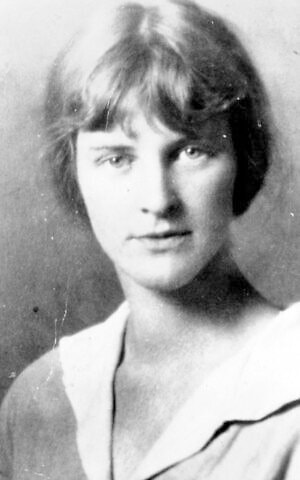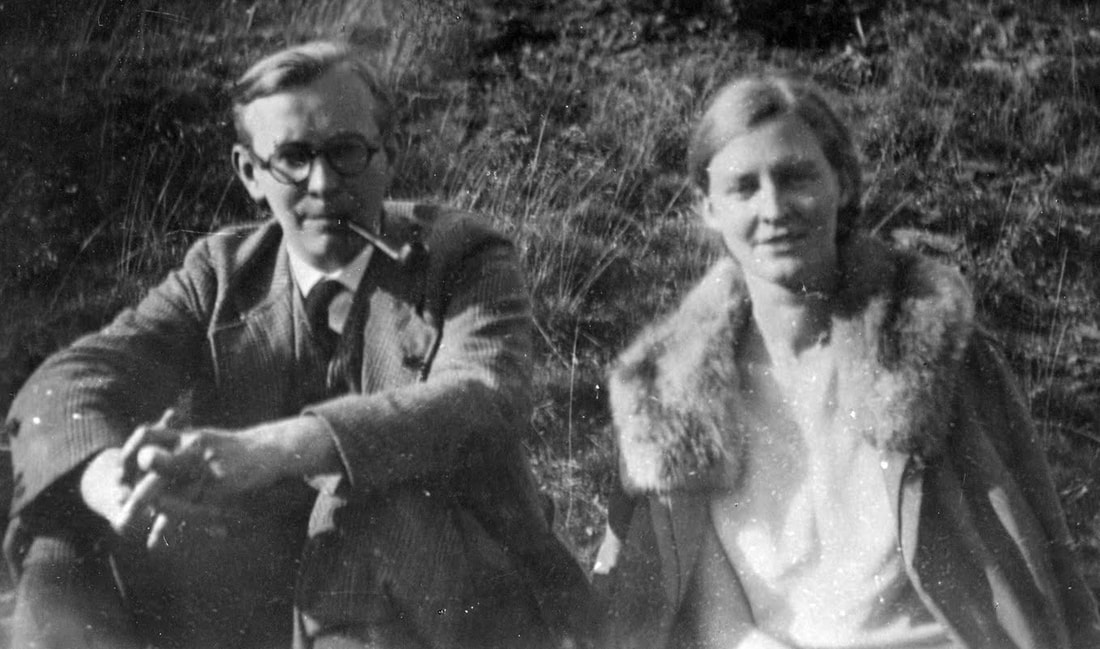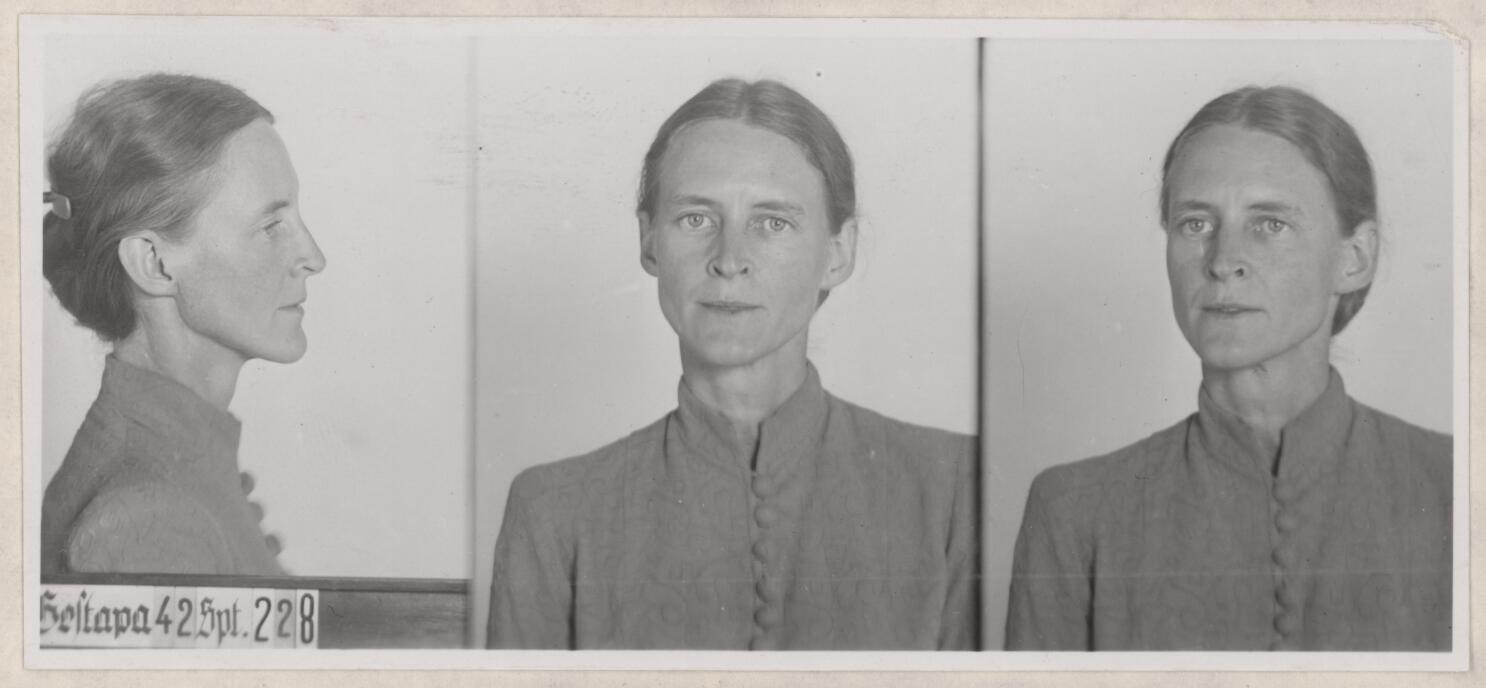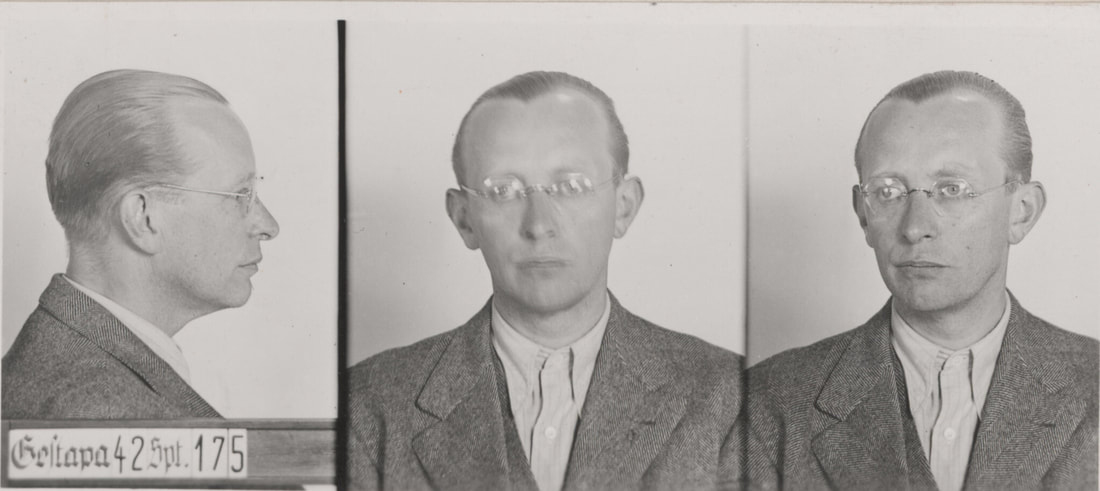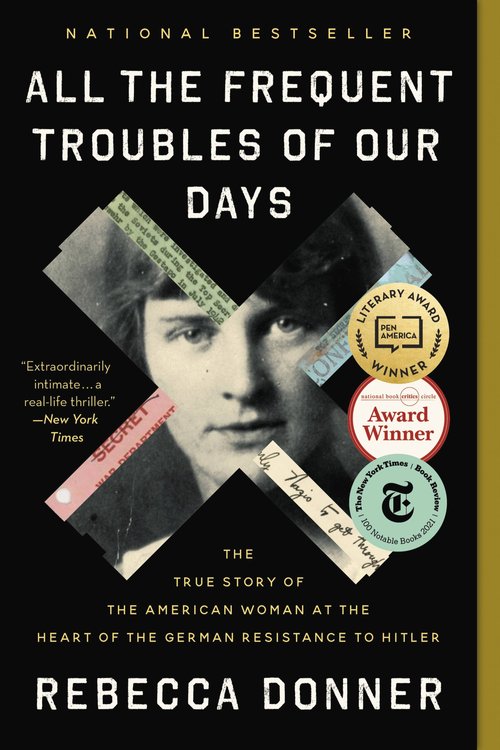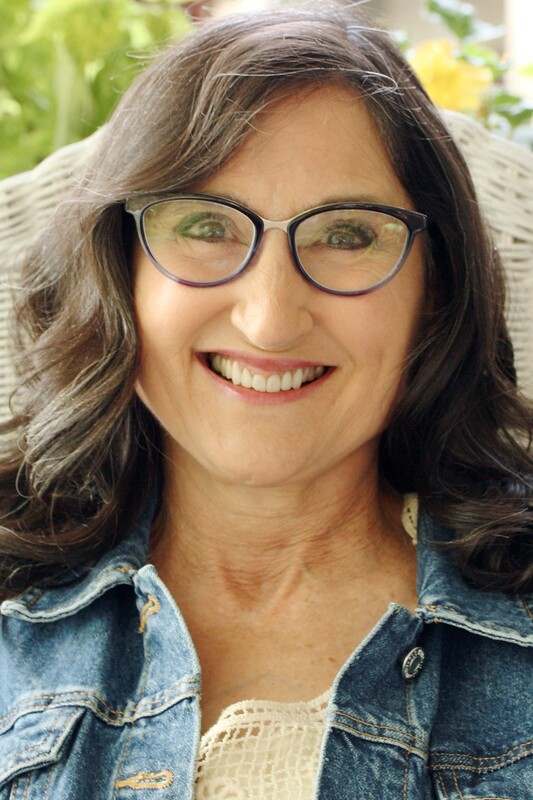|
"Ich habe Deutschland auch so geliebt."
"And I have loved Germany so much.” The last words spoken by Mildred Fish-Harnack. Though she died in Germany, Mildred was an American. A courageous woman of her convictions, the only American executed on direct orders from Hitler. The United States government tried to cover up her story for decades because an officer in the Army Counterintelligence Corps believed she was a communist.
With this story comes the question: how is it that American woman started the largest anti-Nazi resistance group in Berlin and we're only hearing about her now?
Mildred Fish, a writer and literature teacher, grew up near “Sauerkraut Boulevard” on the west side of Milwaukee, Wisconsin. She was an active teenager playing basketball and baseball, editing the school newspaper and acting in her senior class play.
Mildred started down the road less traveled after a chance meeting with a German exchange student as a graduate student at the University of Wisconsin. Arvid Harnack ended up in her class by accident.
There's some discrepancy among sources as to whether Mildred had learned German growing up. I'm going with a supposed letter Arvid wrote his mother, June 8, 1926.
“I am very happy. I’ve got engaged. The whole thing is actually very curious because I can hardly speak English and Mildred knows no German. I made up my mind when I saw her for the second time. We got engaged yesterday.” When they married several months later, Mildred hyphenated her name, Fish-Harnack. She finished her Master of Arts and the couple moved to Germany in 1929. By 1931, Mildred Harnack was studying for her doctorate at the University of Berlin and teaching American Literature, acquainting German students with the likes of Emerson, Whitman, Theodore Dreiser, and George Bernard Shaw. Her students liked her; class enrollment tripled over three semesters. The administration, however, did not like her views about the Nazi party. After the following semester, she lost her position. By the fall of 1932, Mildred got a job teaching adults at a night school. She started holding meetings at her and Arvid's apartment, recruiting some of her students to help find ways to combat Nazi influence in the city.
They worked in secret, their only defense against Hitler's rising power—paper and words. They published an underground newspaper criticizing the Nazi regime and distributed it throughout the city. Several members of the group caught in possession of illegal literature were sent to concentration camps.
Mildred had the means to come home to America, but she stayed for decade, working with other anti-Nazi groups including the extended family of Dietrich Bonhoeffer. By 1940, Mildred and Arvid were leading the largest underground resistance organization in Berlin. Members spied for the U.S. and Soviet embassies, and after Germany invaded Russia, passed military intelligence to Moscow. In 1942, German radio counterintelligence intercepted and decoded radio transmissions that revealed the names of the group. Mildred and Arvid were arrested in September 1942.
After a four-day trial in mid-December, the couple was convicted by a Nazi military court. At that time, Mildred received a six-year prison sentence, while Arvid, convicted of high treason and espionage, was sentenced to death.
As he awaited execution, he wrote his wife. “Can you remember Picnic Point, when we got engaged? ...our first serious talk at lunch in a restaurant in State Street? That talk became my guiding star and has remained so.... “You are in my heart…My greatest wish is that you are happy when you think of me. I am when I think of you. Many, many kisses! I hug you tight. Your A.” Several days later Arvid was hanged, never knowing that Hitler would intervene in his wife's case.
When Hitler was told of Mildred's sentence, he ordered a new trial and this time, like Arvid, she was sentenced to death. February 16, 1943, Mildred was tied down and guillotined. The Nazis recorded that it took her seven seconds to die.
So why was Mildred's story concealed in classified documents? Why was she not celebrated like other heroines of Nazi resistance? An officer in the U.S. Army Counterintelligence Corps believed Mildred was a communist because she gave information to the Soviets during the war. He wrote a memo saying, in so many words, she deserved her punishment. Mildred was remembered by those who had known her at the University of Wisconsin. In 1947, they recognized her in their alumni magazine. A plan to honor Mildren more publicly was quashed. As a UW documentary explained: “Wisconsin senator Joe McCarthy and his hunt for Communists may have been a factor. So instead of honoring Mildred, the university’s inquiry triggered an FBI investigation.” The full story is coming out now. One of Mildred's descendants, a great-great-niece, Rebecca Donner has combed through archives in the US, the UK, Germany and Russia to write a book. A very personal book. "My first memory of hearing [Mildred's] name was when I was about 9 years old." Rebecca Donner told NPR. "And my great-grandmother in Chevy Chase, Md., was measuring my height on the kitchen wall, and when I stepped back...I saw an M, and I thought, who is she?
And my great-grandmother said, well, that's Mildred. I wanted to hear more, but - she was not forthcoming. And at the age of 9, I thought, well, there's a mystery here. And later, when I was a teenager - when I was about 16 - my grandmother gave me Mildred's letters."
The book by Author Rebecca Donner is called All the Frequent Troubles of Our Days: The True Story of the American Woman at the Heart of the German Resistance to Hitler.
According to the The New York Times review:
"The book about Harnack’s life and death turns out to be wilder and more expansive than a standard-issue biography. Donner is Harnack’s great-great-niece, so this is a family history too. It is also a story of code names and dead drops, a real-life thriller with a cruel ending — not to mention an account of Hitler’s ascent from attention-seeking buffoon to genocidal Führer." Like my article today? Please share:
Sources
https://www.npr.org/2021/08/22/1027830968/rebecca-donner-tells-the-story-of-her-great-great-aunt https://news.wisc.edu/mildred-fish-harnack-honored-as-hero-of-resistance-to-nazi-regime/ https://www.timesofisrael.com/a-courageous-american-woman-led-the-largest-resistance-group-in-nazi-germany/ Comments are closed.
|
I'm fascinated to discover little-known history, stories of people and events that provide a new perspective on why and how things happened, new voices that haven't been heard, insight into how the past brought us here today, and how it might guide us to a better future.
I also post here about my books and feature other authors and their books on compelling and important historical topics. Occasionally, I share what makes me happy, pictures of my garden, recipes I've made, events I've attended, people I've met. I'm always happy to hear from readers in the blog comments, by email or social media. Archives
September 2023
Categories
All
|
